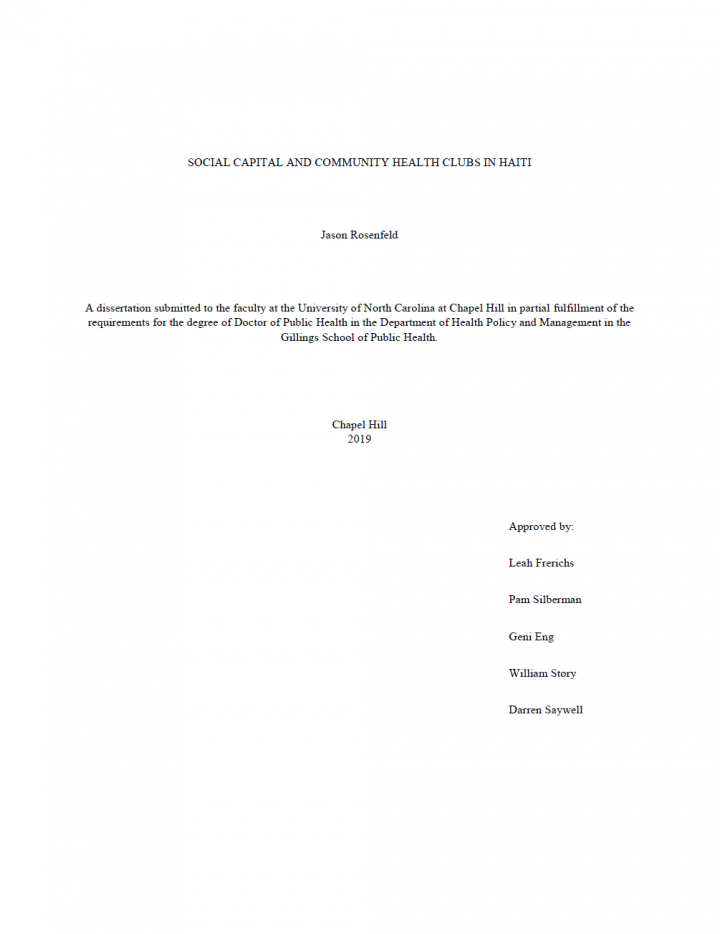Social Capital and Community Health Clubs in Haiti Rosenfeld, J. (2019)
One challenge facing WASH programs is that water and sanitation infrastructure are generally collective goods, while WASH behaviors involve individual responsibilities nested within collective norms. Social capital is theorized to facilitate collective action and enhance the diffusion of WASH-related behavioral interventions by enhancing social cohesion and collective action. We used a mixed methods study to assess the relationship between social capital and a Community Health Club (CHC) program. We conducted a secondary analysis of data from a quasi-experimental evaluation of a CHC program in Haiti and held six focus groups with program participants and implementers. We used multi-level linear regression models to determine the impact of the intervention on WASH knowledge, behaviors and social capital, and the influence of social capital on changes in WASH knowledge and behaviors. We used inductive and deductive methods to analyze qualitative data where participants identified and described the factors that influenced perceived changes in WASH behaviors and collective action. Among intervention respondents, we measured significant increases in average WASH knowledge scores (p0.0001), a marginally significant decrease in trust and social solidarity scores (p=0.07), and no effect on WASH behaviors. Baseline social solidarity scores were associated with a significant increase in WASH behaviors (p=0.03). We also found a marginally significant interaction between the intervention and participation scores on average WASH knowledge scores (p=0.08) and a significant interaction between the intervention and social solidarity scores on average hygiene index scores (p=0.04). Qualitatively, discussion participants noted how CHCs disseminated knowledge and promoted WASH behavior change and collective action in intervention communities, built strong social bonds based upon trust and a sense of social solidarity, and how CHCs used trust and social solidarity to influence behavior change and collective action
Bibliographic information
Rosenfeld, J. (2019). Social Capital and Community Health Clubs in Haiti

